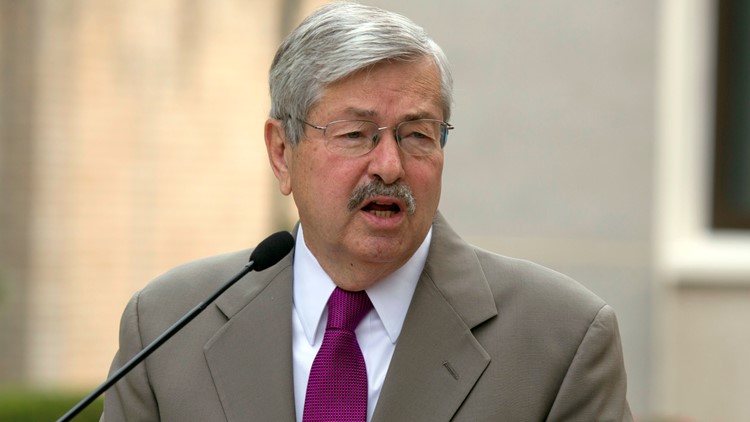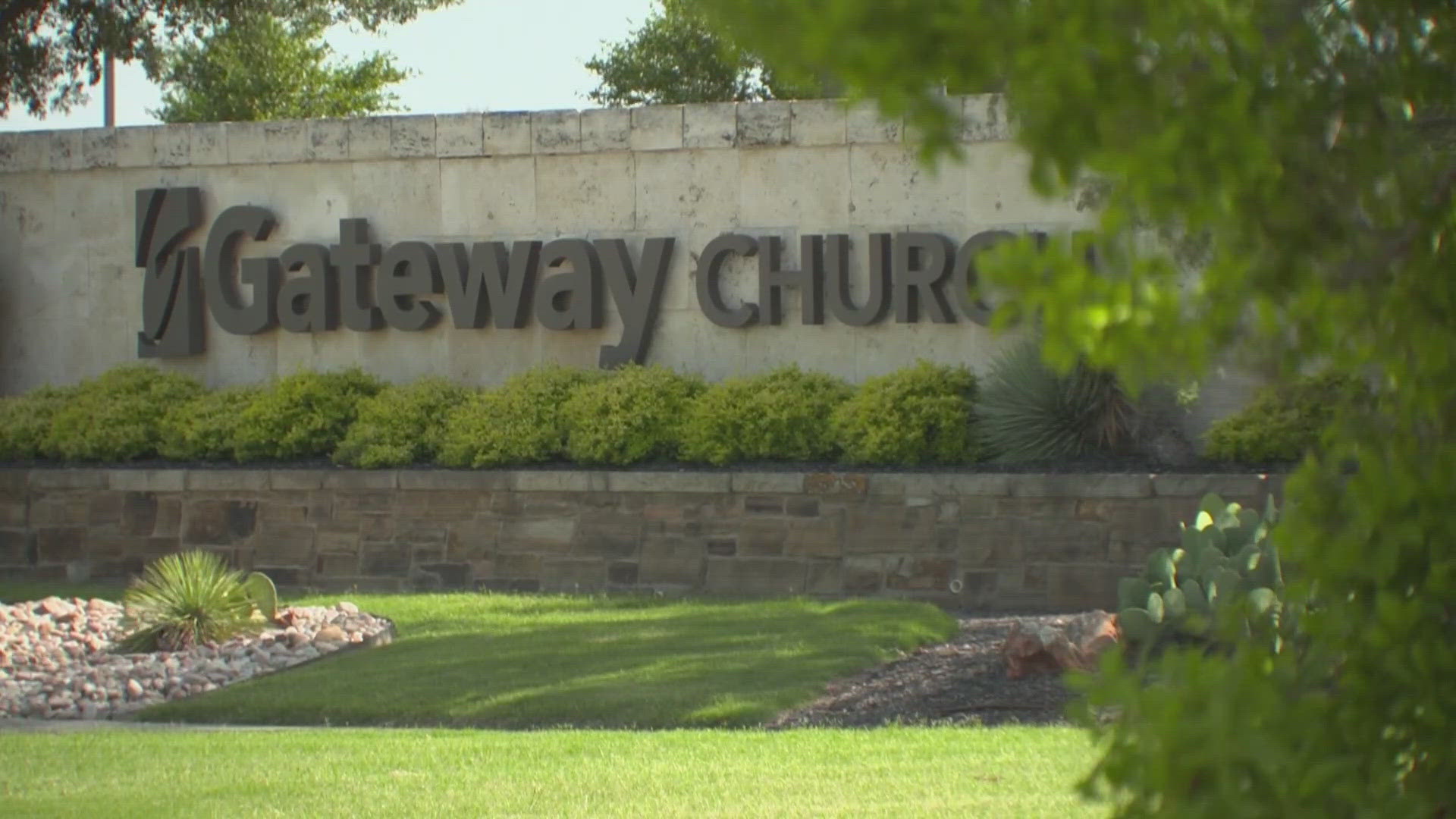BEIJING, China — The U.S. ambassador to China will step down early next month, ending a three-year tenure marked by a trade war and increasingly bitter relations between the world's two largest economies.
Terry Branstad, appointed by President Donald Trump in 2017, confirmed his decision in a phone call with Trump last week, the U.S. Embassy said in a statement Monday. It did not give a reason for his departure.
“I am proudest of our work in getting the phase one trade deal and delivering tangible results for our communities back home," he was quoted as saying at an embassy staff meeting on Monday.
Word of his departure leaked out earlier in the day when Secretary of State Mike Pompeo thanked Branstad on Twitter for his service.
“Ambassador Branstad has contributed to rebalancing U.S.-China relations so that it is results-oriented, reciprocal, and fair,” Pompeo wrote in a follow-up tweet.
China's foreign ministry said before the embassy announcement that it was aware of Pompeo's tweet but had not received any notification that Branstad was leaving.
Branstad became embroiled in a recent controversy when China’s official People’s Daily newspaper rejected an opinion column that he had written.
Pompeo tweeted last week that China's ruling Communist Party refused to run Branstad's op-ed while the Chinese ambassador to the United States “is free to publish in any U.S. media outlet.”
Chinese foreign ministry spokesperson Zhao Lijian responded that Branstad's article was “full of loopholes, seriously inconsistent with facts and wantonly attacks and smears China.”
The U.S. Embassy had contacted the People's Daily on Aug. 26 about the piece, asking that it be printed in full without any edits before Sept. 4, the People's Daily said in a statement posted online.
Branstad, 73, is a native of Iowa and was governor of the major farming state for 22 years over two spans, from 1983 to 1999 and 2011 to 2017.
Early in his first term, he met Xi Jinping, now China's leader, when the then county-level Communist Party official visited Iowa on a 1985 trade trip.
Trump appointed him ambassador after a vacancy of several months, during which the embassy's No. 2 official, David Rank, resigned after criticizing the Trump administration’s withdrawal from the Paris climate accord.
Soon after arriving in Beijing in June 2017, Branstad welcomed American beef back to the Chinese market after a 14-year ban, saying “I know it is a key priority of the president to reduce the trade deficit, and this is one of the ways we can do it.”
But trade relations quickly soured, as the U.S. imposed tariffs on Chinese products and China retaliated in kind. Other disputes followed over technology, human rights and the response to the coronavirus pandemic.
Branstad joined U.S. Trade Representative Robert Lighthizer and U.S. Treasury Secretary Steven Mnuchin at trade talks with Chinese counterparts in Beijing in May 2019.
The phase one deal reached the following January represented a truce but did not address the more fundamental complaints of the American side.
The U.S. Embassy statement also noted Branstad's role in the effort to reduce the flow of fentanyl from China to the United States, including a 2018 pact in which China agreed to list the opioid as a controlled substance.
Branstad also made a rare visit to Tibet in May 2019, where he expressed concerns about what the U.S. called Chinese government interference in the freedom of Tibetan Buddhists to organize and practice their religion.
“He encouraged the Chinese government to engage in substantive dialogue with the Dalai Lama or his representatives, without preconditions, to seek a settlement that resolves differences,” an embassy statement at the time said.



